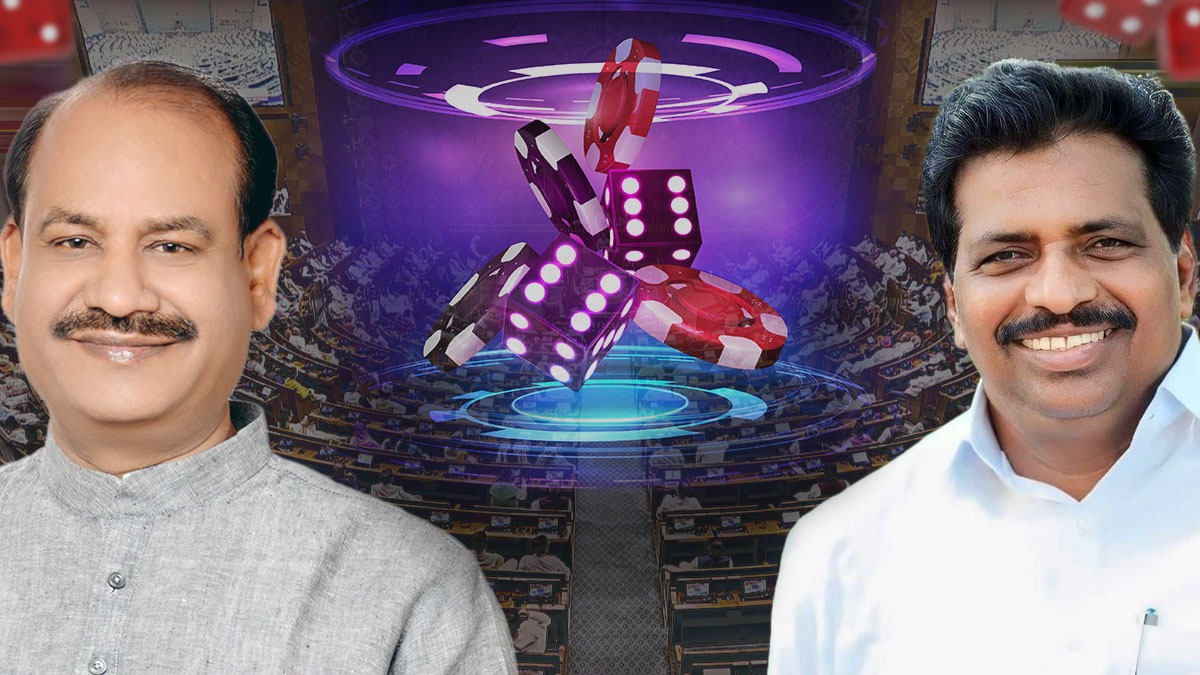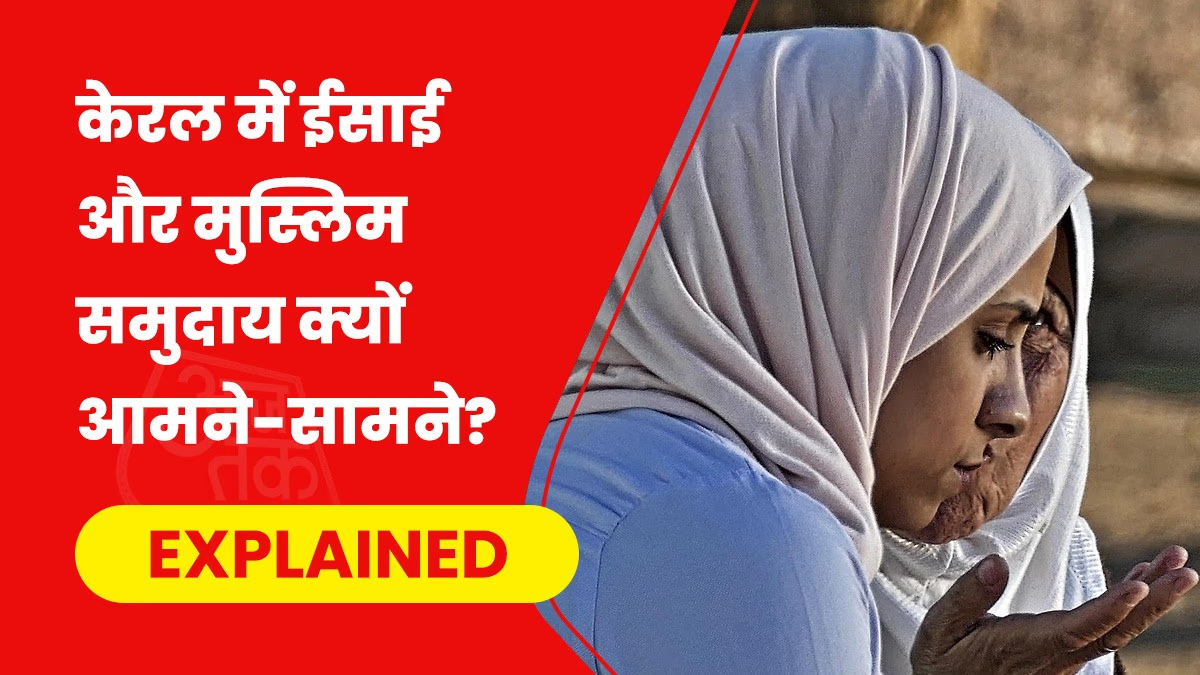For the first time in five decades, the Lok Sabha Speaker election is underway, pitting the ruling party against the opposition. While Om Birla of the NDA is expected to win, the opposition has fielded K. Suresh to convey a strong political message: the government's path won't be as easy as the last decade. Victory or defeat matters less; each side is keen to play all their cards like the Irish Switch game.
India's present generation may have witnessed many elections, but Lok Sabha Speaker elections have only occurred twice before: in 1952 and 1976. Now, for the third time, this electoral battle has begun. The Congress' conditions for supporting a deputy speaker post and BJP's parliamentary arithmetic have eliminated the possibility of consensus, paving the way for elections. With Om Birla from NDA on one end and K. Suresh from Congress on the other, this combat has virtually become an Irish Switch game, where everyone knows the outcome, but all factions intend to use all their cards.
Politics always demands not just the constant success of your strategies but also the brilliance of your star. This requires a good grip on friends as well as opponents. The term 'Irish Switch' was often associated with John F. Kennedy's grandfather John Fitzgerald, who was said to procure votes even from a flying bird. Senator and Mayor positions were considered to be in his pocket.
The numerical game of Speaker elections!
If we delve into the numbers of Lok Sabha, the picture is different from 2014 and 2019. BJP, leading the NDA, is the biggest party with 240 seats but is short of the magical 272 for a majority. However, pre-poll alliances worked in favor and brought NDA's strength to 293 seats, well over the required 272. On the other hand, Congress won 99 seats; however, Rahul Gandhi resigned from Wayanad seat, bringing their tally down to 98. Including the India Block lead by Congress, the opposition holds 233 seats. Seven independents and 16 others have also been elected to Parliament, but they're unlikely to tip the scales. Now, despite the number game being against them, the strategy of India Block is clear: to send a resounding message.
Diverse leaders from India Block including DMK, Shiv Sena (Uddhav), NCP (Sharad Pawar), and others were present during K. Suresh's nomination. However, TMC expressed dissatisfaction for not being consulted, leading to their MPs refusing to sign the nomination. When asked why a candidate was fielded despite the unfavorable numbers, K. Suresh replied - 'Win or lose, we must fight...'
Why discuss the Irish Switch game?
Within the World’s largest democracy, this battle over numbers in the Parliament is crucial for both sides, particularly for political messaging. The Irish Switch, an intriguing but sly attribute of a card game mentioned in Ireland, is considered a political necessity. It signifies a situation where you keep talking to one, holding hands with another, and simultaneously keep an eye on a third.
Must have a power card in every game...
The power balance rule of politics becomes evident in the Irish Switch game. It is a card game where players are initially dealt equal number of cards, often seven per person. All cards have equal value, but some are termed 'power' or 'trick' cards due to their game-changing effects. Be it India, the US, or any other country, the 'power card' is the most crucial element in politics – a trump card capable of defeating the opposition in one fell swoop.
Why did it come to an open fight?
After two successive powerful victories, BJP, ruling independently for a decade, has now had to rely on an NDA majority coalition. Both the ruling and opposition factions are securing their alliances. The BJP, in power for the third time with the coalition's help, is determined to not allow the opposition a new platform, even when it comes to the Deputy Speaker post. Congress, on the other end, is eager to show that their numerical game is stronger than the past two terms and that the opposition is more united.
The tradition aspect and its implications.
When Defense Minister Rajnath Singh called Congress President Kharge seeking support for the Speaker elections, Congress set a clear condition: To gain support, the Deputy Speaker post must be given to the opposition, reminding BJP of the pre-2014 parliamentary tradition. However, tradition changed in 2014 with the Modi government, and the numbers game shifted. Instead of giving the Deputy Speaker position to the main opposition party, Congress, BJP chose Thambidurai from AIADMK in 2014, and the post remained vacant during the last Lok Sabha tenure.
A small battle, but with significant implications...
Congress knows BJP will comfortably win the Speaker elections with support from JDU and TDP, but this fight isn't about beating the ruling side in numbers; it's about demonstrating opposition unity and the changed landscape. The real contest now is about who prevails in this strategic game. Hence, like the Irish Switch game, everyone wants to utilize every available card – some battles are fought not only to win but also to establish new precedents and send far-reaching messages.
Moreover, it is often said in politics that strategies should evolve with the wind's direction. In politics, every move has an underlying tactic. With the Speaker elections battle now ignited, there are gains and losses for every party. Ideally, an election for the most significant parliamentary position should not result in this kind of confrontation.
About 2,000 years ago, the Chinese philosopher Sun Tzu wrote in 'The Art of War' that the greatest victory is that which requires no battle. His words are still applicable across fields, whether in warfare, political arenas, or daily life. Winning the game is about remaining consistent with the rules, using clever tactics to convey messages, and balancing power. Ultimately, those fitting well with these strategic moves emerge triumphant.




